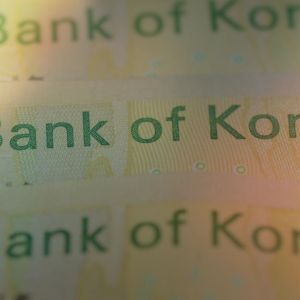
South Korea’s central bank wants to keep a tight grip on how stablecoins enter the country’s financial system. On Tuesday, senior deputy governor Ryoo Sang-dai of the Bank of Korea (BOK) told reporters in Seoul that any rollout of won-based stablecoins must start with commercial banks only. “It is desirable to first allow banks, which are under a high level of regulations, to issue won-based stablecoins and gradually expand to the non-bank sector with the experience,” Ryoo said, according to Reuters . The central bank made it clear it won’t support a broad release without building experience and structure first. Stablecoins are crypto tokens built to match the value of fiat currencies, usually pegged to something like the US dollar. Traders use them to move quickly between coins and exchanges. Some companies are also starting to adopt them for settlements. Now, South Korea wants a version pegged to the won, but the central bank isn’t trying to rush it. Ryoo warned that introducing stablecoins could impact monetary policy and how transactions settle across the system. He echoed earlier warnings by Governor Rhee Chang-yong, who’s raised flags over cross-border capital flows. Ryoo said a reliable safety net is needed to avoid instability and to make sure users are protected. Central bank links stablecoins to South Korea’s policy, economy, and pilot project South Korea’s new government also plays a big role here. President Lee Jae Myung, who’s from the Democratic Party, had promised during his campaign to open doors for companies to issue won-based stablecoins. That promise is now moving toward law, with the party proposing legislation to create a full regulatory setup. They don’t want South Korea falling behind other markets already experimenting with national stablecoins. Ryoo also addressed housing and household debt. He said the BOK now considers both rising home prices and ballooning debt as key risks. He added that last month’s interest rate cut moved the benchmark rate into the middle of the neutral range—meaning the central bank now has flexibility to either lower or raise rates if needed. On digital currency, Ryoo said the BOK is preparing for a second pilot test of its central bank digital currency, or CBDC. He said the bank will work with commercial lenders on the next phase, depending on how the administration’s digital policy develops. The first test, which started in late 2023, is ending next week. That project was done alongside the Bank for International Settlements, which helps coordinate central banks globally. Lastly, Ryoo confirmed the government is also working on foreign exchange market reform. As digital finance grows, he said authorities plan to speed up opening South Korea’s currency market to more foreign investors. That follows last year’s move to extend FX trading hours and allow overseas firms more access. Your crypto news deserves attention - KEY Difference Wire puts you on 250+ top sites
